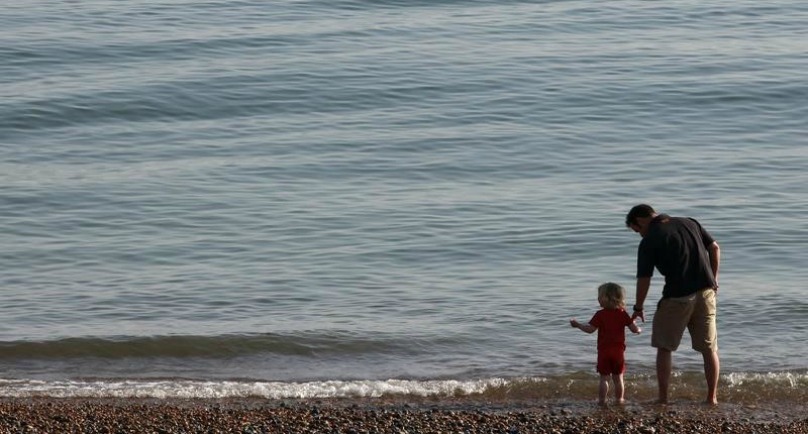Image: A man and child walk by the sea in Brighton, southern England April 20, 2011. REUTERS/Luke MacGregor
By Lisa Rapaport
(Reuters Health) – Children with disruptive behavior disorders may respond best to therapy when their parents participate, too, a research review suggests.
These disorders, which include behaviors such as temper tantrums, interpersonal aggression and defiance, impact an estimated 3.5 percent of kids and teens, researchers note in the journal Pediatrics.
In their analysis of previous studies of interventions, they found that while any therapy was better than none, the children didn’t respond as well to treatment on their own as they did to approaches focused on their parents.
“Common sense and research evidence suggest that parent involvement is important to a wide range of psychosocial interventions for children, not just those aimed at alleviating disruptive child behavior,” said lead author Richard Epstein, a research fellow at the Chapin Hall Center for Children at the University of Chicago, who did the analysis while at Vanderbilt University in Nashville.
Parents had the biggest impact on the outcomes of therapy for preschoolers and for kids in elementary school, rather than for teenagers, the study found.
Many studies included in the analysis lacked outcomes data from independent observations of children by researchers who didn’t know what type of treatment the kids received, the authors acknowledge. And few of the studies directly examined child-only approaches.
Even so, the authors conclude that parent involvement, either alone or in combination with other components of therapy, is more likely to help children improve their behavior than leaving parents out of the mix.
“Disruptive child behavior doesn’t occur in a vacuum, and parent-child interactions are the primary context within which child development unfolds,” Jonathan Comer, a researcher at the Center for Children and Families at Florida International University in Miami, said by email.
“When it comes to treating child defiance, aggression, and other related symptoms, you just don’t get much traction without working on how the adults in children’s lives respond to children’s disruptive behaviors,” Comer added by email.
The findings should offer some reassurance to parents who want to try therapy for their children before turning to medication to address behavioral disorders, noted Daniel Bagner, also of the Center for Children and Families.
“While medication can sometimes be helpful when problems are complex and include extremely challenging behaviors (e.g. severe aggression), it should only be used in conjunction with psychosocial treatment,” Bagner, who wasn’t involved in the study, said by email.
Parents can make therapy more successful for their children because when kids are treated on their own, the lessons may be hard for them to apply in the settings where they have behavior problems, like home, school or the playground, said Ricardo Eiraldi, a researcher in pediatric psychology at the University of Pennsylvania Perelman School of Medicine in Philadelphia.
When parents are involved, therapy can help them learn behavior management strategies to help their children improve, Eiraldi, who wasn’t involved in the study, added by email. Successful approaches might include praise for good behavior, ignoring minor misbehavior, giving effective commands, and letting the child earn rewards for behaving according to expectations, he said.
The paper also offers more evidence that parents can help kids most by getting involved in therapy sooner, Matt Burkey, a researcher at Johns Hopkins University who wasn’t involved in the study, said by email.
“The findings of this analysis support the idea that earlier interventions, especially in the preschool period, are more effective,” Burkey said. “Once children are older, parents have somewhat less influence over children’s behavior.”
SOURCE: http://bit.ly/1kmZFpF Pediatrics, online October 19, 2015.
Copyright 2015 Thomson Reuters. Click for Restrictions.


